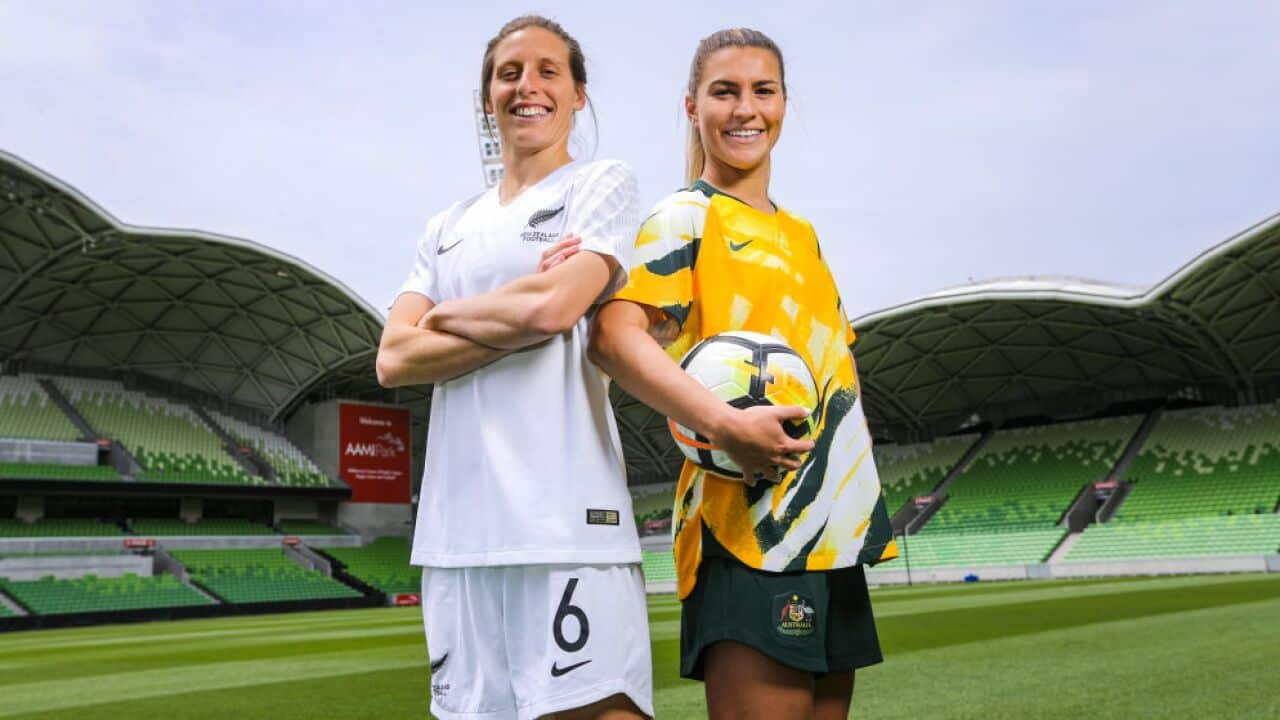On a bright October afternoon in 1979, 22 women walked out onto a football pitch in the eastern Sydney suburb of Miranda.
It looked just like any other football game: a handful of spectators were scattered along some nearby wooden benches, others leaned against the advertising hoardings that ringed the field.
The lines were barely marked. The grass was patchy and dry; common for this point of the season. The teams – wearing dark green and white jerseys, respectively – lined up, shook hands, and played out a 2-2 draw.
Except this wasn’t just any other football game. This was the Matildas’ first ever international “A” match – the first match formally recognised by FIFA. And it came against our cousins across the ditch: New Zealand.
Just over fourty years on, these two storied women’s football nations will come together and be written into history once more as hosts of the 2023 Women’s World Cup.
In the early hours of Friday morning, FIFA Council members voted to award the most prestigious women’s football tournament on the planet to “As One”, the joint-bid submitted by Australia and New Zealand last year. “As One” gained 22 votes to Colombia’s 13.
Australian and New Zealand football will never be the same.
We know that because the game in our two countries has already come so far since that Spring afternoon at Seymour Shaw Park.
Hand-me-down national team jerseys have become bespoke kits worn by thousands of fans around the world.
Raffle tickets and lamington drives have become multi-year sponsorship deals with international brands, lucrative club salaries, and equal pay for national team players.
Playing the game as passionate amateurs has become playing the game as passionate professionals.
The story of women’s football in Australia and New Zealand is the story of women’s football around the world: despite decades of silence and exclusion, the women’s game has flourished.
Its highest ebb – so far – was just last year, when over one billion people tuned in to watch the 2019 Women’s World Cup.
2023 will see women’s football’s global tide rise once again.
Hosting the Women’s World Cup on Australian and New Zealand shores will be our game’s saving grace. It will see participation numbers – particularly for women and girls – skyrocket. It will see renewed public interest in our professional leagues, the W-League and A-League.
It will see commercial opportunities unlocked across the Asia-Pacific, attracting hundreds of millions of dollars into our local and sporting economies.
It will see the Matildas and Socceroos stars of tomorrow experience their footballing “moment” – the ones we all cherish, the ones that made us life-long fans of this tragic, beautiful game – and put them on a path towards future greatness.
But most importantly, hosting this tournament in Australia and New Zealand sends a message. It sends a message to each other and to the world that women – not just in sport, but in all modern life – truly matter.
“As One” isn’t just a catchy slogan that summarises the logistics of a historic cross-country and cross-continental World Cup bid. It’s a metaphor for our current moment.
As our world feels more fractured and divided than ever before, sport – through tournaments like this one – has a unique ability to unite us.
We’ve seen it in recent weeks how sport has taken a stand against racism. We see the power sport has to change the world when it decides to.
That is “As One”’s mandate. It recognises and embraces its responsibility to use its power for the betterment of all those who believe in it. And in the era of COVID-19, where we are all separated from each other not just physically but also culturally, economically, and politically, “As One” becomes a profound symbol of how sport can bring us together.
The arc of the moral universe is long, said Martin Luther King Jr., but it bends towards justice. Today, Australia and New Zealand are bending back towards each other – almost half a century on from that first match in a quiet, leafy suburb of Sydney – to culminate in this moment of celebration, of recognition, of hope, and of possibility.
Ours are the nations that decided awarding women the vote – the first nations in the world to do so – mattered.That electing some of the first women to parliament and to elect some of the first women Prime Ministers mattered. That pay equality for women’s national teams across multiple codes mattered. That women matter.
As Australian and New Zealand football enters a new decade, continuing to grapple with its identity, its purpose, and its future, it’s that visibility and accessibility of women athletes that will have the most profound impact on who we want to be as a sport and as a community.
And for a young girl sitting on her couch at home – knees curled up underneath her, hands clasped in prayer – the footballers running around on her TV screen will look just like her.
That representation is, ultimately, what matters, for it will change the game in our two nations forever.










